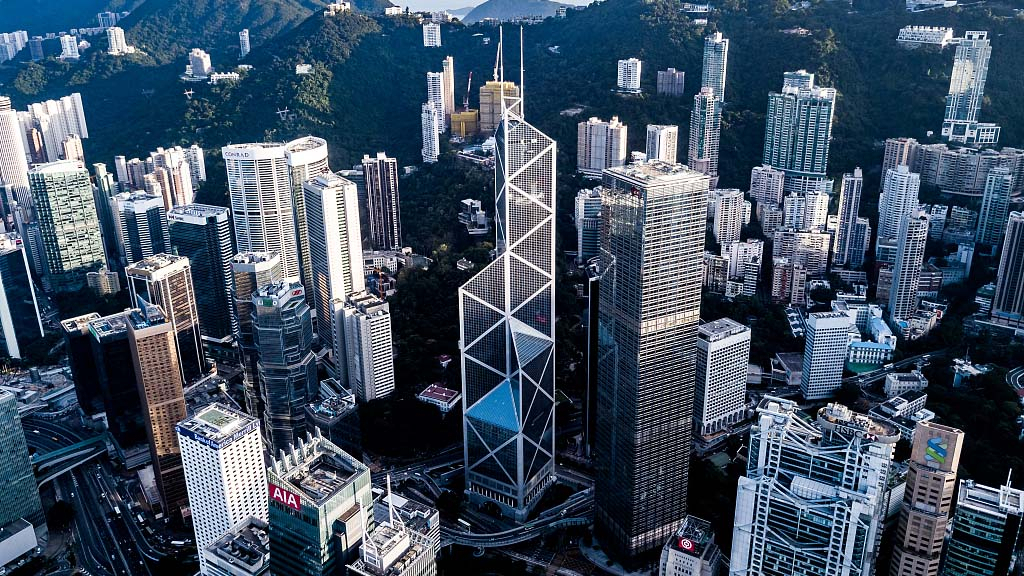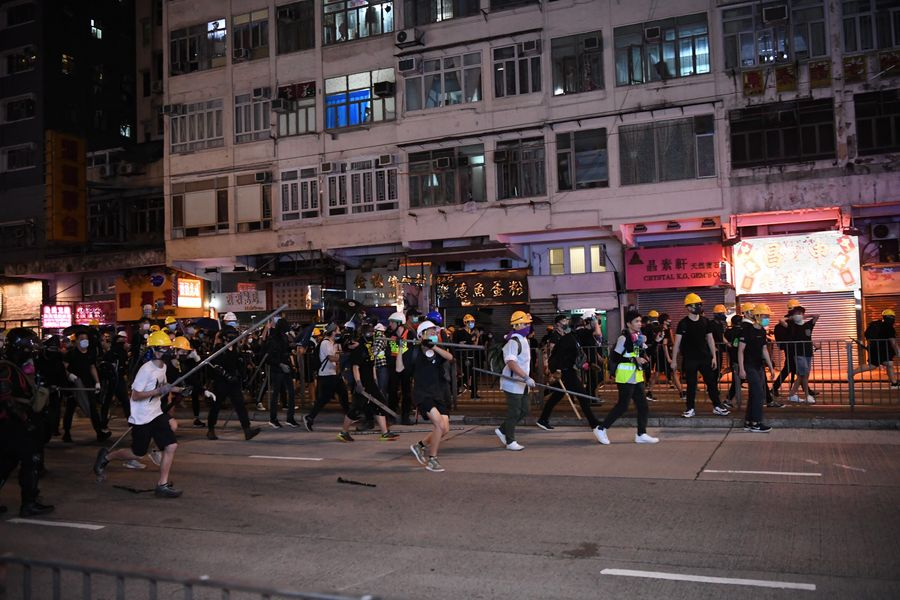
Editor's note: Tom Fowdy is a British political and international relations analyst and a graduate of Durham and Oxford universities. He writes on topics pertaining to China, the DPRK, Britain, and the U.S. The article reflects the author's opinions, and not necessarily the views of CGTN.
News emerged Friday that Hong Kong billionaire Jimmy Lai was arrested by the city's police force for participating in illegal assembly and on allegations of blackmailing a journalist from the Oriental Daily newspaper. The charges stem from his involvement in a banned march on August 31.
Lai's publication, Apple Daily, is known for its anti-government position and strong support of violent protests which took place in the city last year. Lai himself is also a close friend of many American politicians in the Republican Party who has advocated pressure on Hong Kong.
Given these circumstances, critics have moved quickly to claim that Lai's arrest is inherently political and is aimed at suppressing freedom of speech in the special administrative region.
However, what Hong Kong activists fail to understand is that given political freedoms they profess to advocate do not translate into a free and unrestrained reign to violate and undermine the rule of law in the city, of which Lai has been an advocate of on multiple fronts. With the Apple Daily still running, their argument is subsequently unfounded. In this case, it is in the interest of the city as a whole to pursue this move.
What is illegal assembly? It is a legal terminology we hear of a lot in relation to events in Hong Kong, and owing to the bias of the mainstream media in favor of the protests it is not one that is explored in much depth. It refers to a given gathering, stipulated as a minimum of three people, in an area that has not been given the approval of authorities to go ahead.
While this may sound authoritarian, this is the law in multiple Western countries. And in Hong Kong, it is derived from the United Kingdom as a colonial legacy. When a protest takes place in the United Kingdom, the Public Order Act 1986 stipulates its authorization on the approval of police chiefs who may impose conditions on the given location and participants, and if a given threat to property or public safety is tangible, they may deny it accordingly.

Violent protesters go after a police vehicle in North Point, south China's Hong Kong, August 5, 2019. /Xinhua
Violent protesters go after a police vehicle in North Point, south China's Hong Kong, August 5, 2019. /Xinhua
A breach of this law is subsequently a "public order offense" or otherwise "illegal assembly." In Hong Kong, there have been peaceful police-approved protests where nobody was arrested, and also illegal ones where participants refused to accept this and resorted to violence.
Of course, Lai's supporters will note that he is a 71-year-old businessman and not rioting on the streets, pointing out to the fact his participation in one such demonstration was last August. However, why does this make him immune from the law? While it is true that the police can make tactical but legitimate arrests pertaining to other, wider problems, Lai is undoubtedly culpable to a degree for encouraging and supporting others to go ahead and violate this given law in Hong Kong.
This does not even take into account the second allegation, of which we do not know the full details.
Yet of course, people will still cry out this is a political arrest and an attack on freedom of speech. How exactly? Have the Hong Kong police shut down the Apple Daily as a whole? Has it ceased operations? Lai may have founded the newspaper, but it is an entire organization and it itself continues to function as normally and likely will so irrespective of the merits of this case. In this light, it is an overstretch to claim that his arrest is somehow an impediment on freedom of speech within the city.
Instead, Hong Kong's police are focusing on restoring the rule of law in the city and its authority. For too long now, activists have held control of a one-sided narrative deceiving people that any effort to uphold the law in the city and sustain basic public order is somehow synonymous with political oppression and an erosion of the "One Country, Two Systems" policy. This is unfounded. Therefore, it should be summarized that nobody is above the rule of law in Hong Kong, which includes billionaires such as Jimmy Lai himself, who has played a pivotal role in spurring unrest which has severely damaged the city's reputation over the past year and plunged it into recession.
(If you want to contribute and have specific expertise, please contact us at opinions@cgtn.com.)